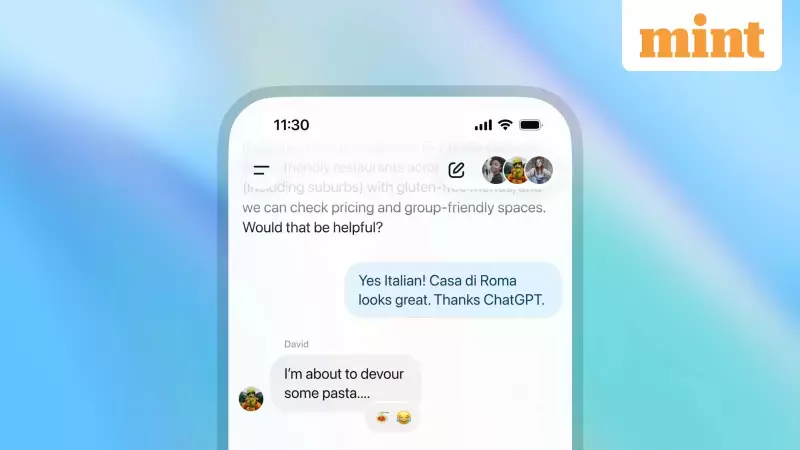
OpenAI has officially stepped into the social collaboration space with the announcement of its new Group Chats feature for ChatGPT. The San Francisco-based AI startup is no longer hiding its ambitions of creating an all-encompassing application as it adds this significant social component to its popular AI chatbot.
OpenAI's Expanding Social Features
This marks the company's second major foray into social media-oriented AI features within weeks. Just a few weeks back, OpenAI launched Sora, a TikTok-like application for AI-generated short videos that quickly gained popularity on iOS platforms. The viral success of Sora demonstrated the company's clear direction toward integrating social experiences with artificial intelligence.
The new Group Chats feature is currently in its pilot phase and is being rolled out to users across multiple subscription tiers. ChatGPT Free, Go, Plus, and Pro users in Japan, New Zealand, South Korea, and Taiwan are the first to experience this collaborative functionality. OpenAI has indicated it plans to gather feedback from these initial markets before expanding the feature to more regions globally.
How ChatGPT Group Chats Work
The Group Chats functionality enables users to bring multiple friends into the same conversation with ChatGPT, creating a collaborative environment where the AI acts as a participant. For instance, when planning a group vacation, users can create a dedicated chat where ChatGPT helps suggest destinations that might appeal to all members and facilitate collective decision-making.
To initiate a group chat, users simply tap the people icon located in the top right corner of any existing chat. When adding friends to an ongoing conversation, ChatGPT automatically creates a copy as a new group chat, ensuring the original conversation remains separate and undisturbed.
Similar to popular messaging platforms like WhatsApp, users can share invitation links with up to twenty people to join the group conversation. When creating or joining their first group chat, users are prompted to set up a brief profile including their name, username, and photo so all participants can easily identify who's involved in the discussion.
Competitive Landscape and Privacy Considerations
This move positions OpenAI in direct competition with Meta, which has offered similar AI integration in WhatsApp for some time. However, there's a significant distinction in how these companies handle user data. Meta acknowledges that all conversations with its AI are used for targeted advertising and content personalization, while OpenAI hasn't indicated similar data usage practices for its Group Chats feature.
OpenAI highlights several practical applications for the new feature, describing it as ideal for group decisions such as selecting restaurants, settling debates where ChatGPT can serve as an impartial referee, and collaborative information organization. Users can share articles, notes, and questions while asking ChatGPT to summarize and structure the shared information effectively.
The company has organized group chats within a clearly labeled section in the sidebar for easy access and management. This strategic expansion demonstrates OpenAI's commitment to evolving ChatGPT from a personal AI assistant into a collaborative platform that facilitates group interactions and decision-making processes.





